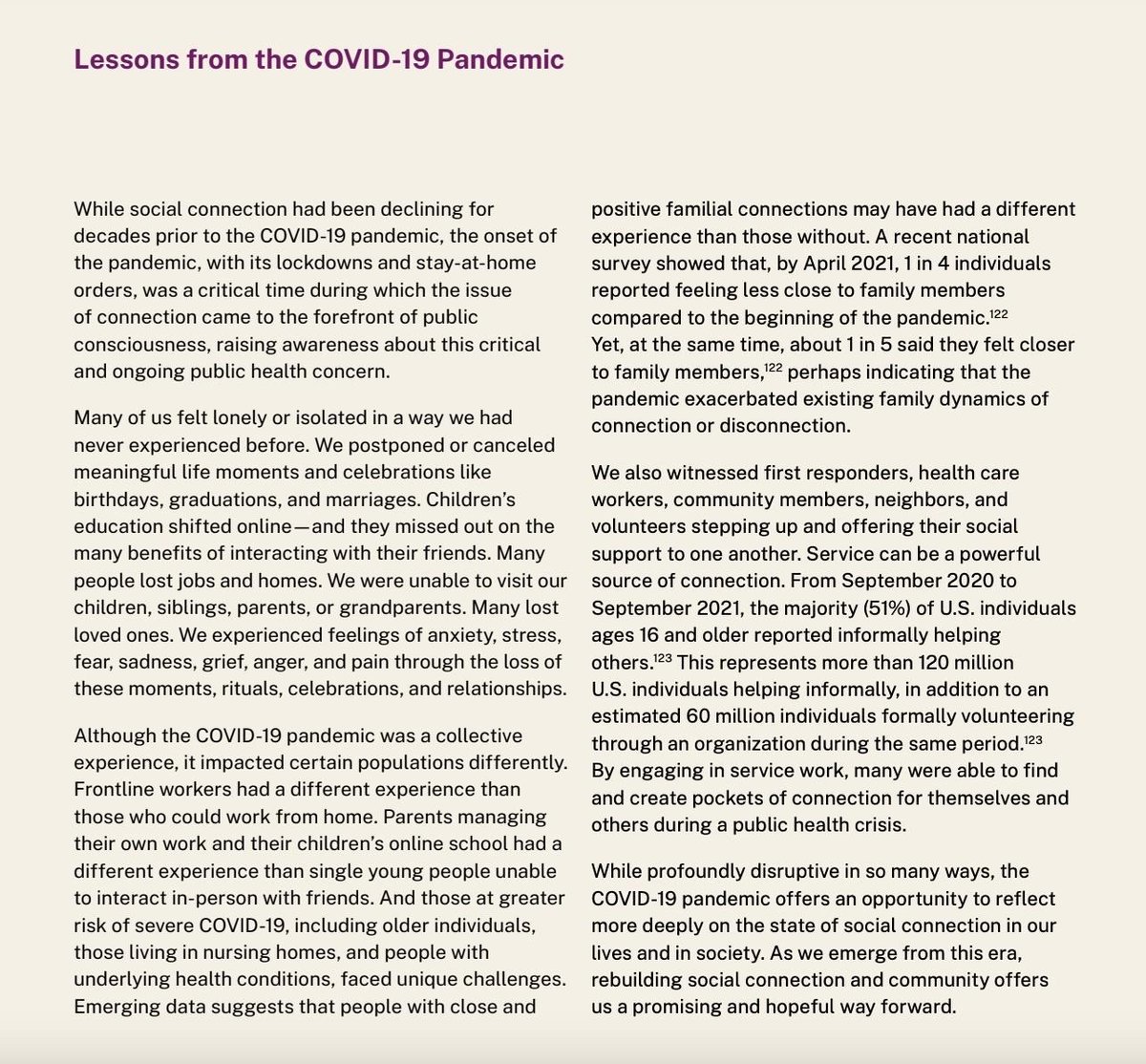Today in @thenation with @arijitchakrav:
The Coronavirus Still Doesn’t Care About Your Feelings
The Covid-19 pandemic is not a state of mind—and telling us not to panic isn’t healthcare.
1/
thenation.com/article/societ…
The Coronavirus Still Doesn’t Care About Your Feelings
The Covid-19 pandemic is not a state of mind—and telling us not to panic isn’t healthcare.
1/
thenation.com/article/societ…
You might be forgiven for thinking it’s been a very quiet few months for the COVID-19 pandemic. Besides the messy rollout of new boosters, the coronavirus has largely slipped out of the headlines. But the virus is on the move.
2/pbs.org/newshour/show/…
2/pbs.org/newshour/show/…
Recent coverage of the so-called Pirola variant, which is acknowledged to have “an alarming number of mutations,” led with the headline “Yes, There’s a New Covid Variant. No, You Shouldn’t Panic.”
3/wired.com/story/pirola-c…
3/wired.com/story/pirola-c…
This coverage might inspire some déjà vu: for the past 4 years, experts and pundits have been telling the public not to worry about COVID-19.
When the Omicron BA.1 variant emerged in 2021, Tony Fauci and Ashish Jha voiced caution against “panic” and “freaking out.”
4/
When the Omicron BA.1 variant emerged in 2021, Tony Fauci and Ashish Jha voiced caution against “panic” and “freaking out.”
4/

Even as early as January 2020, experts were scolding Americans for their emotional response to the coronavirus.
Farhad Manjoo wrote “Panic will hurt us far more than it’ll help.” Zeke Emanuel claimed “We are having a little too much [sic] histrionics about this.”
5/
Farhad Manjoo wrote “Panic will hurt us far more than it’ll help.” Zeke Emanuel claimed “We are having a little too much [sic] histrionics about this.”
5/

But emphasizing the message “don’t panic” puts the cart before the horse unless tangible measures are being taken to prevent panic-worthy outcomes. These assurances against panic have arguably preempted a more vigorous and urgent public health response.
6/
6/
Despite the end of the Public Health Emergency in May, COVID-19 remains a pandemic.
Yet some have advanced the idea that if the public appears to be tired, bored, or noncompliant with public health measures, then the pandemic must be over.
7/thenation.com/article/societ…
Yet some have advanced the idea that if the public appears to be tired, bored, or noncompliant with public health measures, then the pandemic must be over.
7/thenation.com/article/societ…
This misperception — that pandemics can be ended by human fiat — has had remarkable staying power (c.f. Kayyem 2021, “The Pandemic is Ending with a Whimper”).
8/theatlantic.com/ideas/archive/…
8/theatlantic.com/ideas/archive/…
The physician Steven Phillips has called for “new courageous ‘accept exposure’ policies” — asserting that incautious behavior by Americans would be the true signal of the end of the pandemic.
9/
9/

Such efforts to manage and direct public feelings are intended to promote a return to pre-pandemic patterns of work and consumption.
This motive was articulated in a 2022 McKinsey white paper that put forward the invented concept of “economic endemicity.”
10/
This motive was articulated in a 2022 McKinsey white paper that put forward the invented concept of “economic endemicity.”
10/

But again, this claim — that more disease risk and contagion means the end of a disease event — runs contrary to the science.
11/nature.com/articles/s4157…
11/nature.com/articles/s4157…
As the winter months approach, it should now be very clear: we cannot *manifest* our way to the end of the pandemic.
The current situation calls for solutions, not a grieving process that should be hustled along to the final stage of acceptance.
Fin/
The current situation calls for solutions, not a grieving process that should be hustled along to the final stage of acceptance.
Fin/
• • •
Missing some Tweet in this thread? You can try to
force a refresh

 Read on Twitter
Read on Twitter








